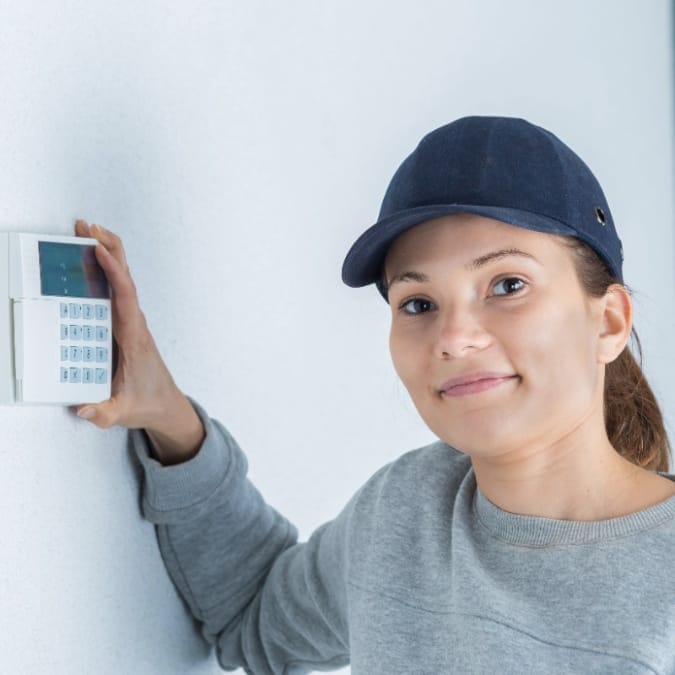The proliferation of smart home technology has, without a doubt, revolutionized the way we protect our homes. From video doorbells to motion sensors that alert us to potential intruders, the possibilities seem endless. However, with these advancements come concerns about the potential misuse of personal data and concerns over how that information is stored. Plus, hackers can potentially exploit backdoors in your home security system to case your home or otherwise watch you without your knowledge.
To address these concerns and determine whether your home security system is spying on you, it’s essential to take a proactive approach. Here are twelve ways to assess the privacy implications of your security setup:
1. Understand Your System
Begin by thoroughly reviewing the user manual of your home security system. Familiarize yourself with its features, including any cameras, microphones, or sensors it may contain, as well as how it collects and stores data. Figuring out the specifications of your security setup will make it easier to identify if anything is amiss.
2. Check for Hidden Cameras
 Sadly, there have been instances of home security technicians spying on customers. So if you had your security system professionally installed, conduct a comprehensive sweep of your home to ensure that there are no hidden cameras in areas where privacy is expected, such as bedrooms, bathrooms, or other intimate spaces.
Sadly, there have been instances of home security technicians spying on customers. So if you had your security system professionally installed, conduct a comprehensive sweep of your home to ensure that there are no hidden cameras in areas where privacy is expected, such as bedrooms, bathrooms, or other intimate spaces.
Cameras can be built into many unexpected items such as power cords, electrical outlets, alarm clocks, and more. So it may be a good idea to use a smartphone app that detects hidden cameras to conduct a thorough search of your space. This will help ensure there aren’t any recording devices in your home that you aren’t aware of.
3. Review Privacy Policies
Take the time to read and understand the privacy policies and terms of service provided by the manufacturer and operator of your security system. Pay close attention to how they handle your personal data, including whether they share it with third parties and if there is a clock on how long they store it.
4. Monitor Network Traffic
Use network monitoring tools to track the data traffic generated by your home security system. Look for any unusual or unauthorized connections that could indicate potential spying or data breaches.
5. Update Firmware Regularly
Keeping your security system’s firmware up to date ensures that it has the latest security patches and fixes. Outdated software may contain vulnerabilities or backdoors that could be exploited by hackers to gain access to your system. If your security system has a mobile app, make sure to regularly update that too.
6. Disable Remote Access to Home Security System
If you’re concerned about unauthorized access to your security system, consider disabling remote access features that allow you to control it from outside your home. This can help prevent hackers from gaining control of your system remotely.
7. Secure Your Network
8. Audit Access Logs
Regularly review the access logs maintained by your home security system to monitor for any suspicious activity or unauthorized access attempts like blocking MAC addresses. This can help enable you to identify potential security breaches and take appropriate action quickly.
9. Monitor for Audio Recording
Some security cameras come equipped with microphones for audio monitoring. Check the settings of your cameras to see if audio recording is enabled and consider disabling it if you have concerns about privacy.
10. Inspect Mobile Apps
About 80% of security attacks against mobile phones come through downloaded apps. So if your security system has a phone app, review its permissions and settings to ensure that it doesn’t have unnecessary access to local data or features that could affect your privacy, such as your camera.
Potential signs that your phone may have been compromised include overheating, excessive data use, screen abnormalities, and a battery that drains quickly. Installing antivirus software can help you detect any hidden spyware on your phone.
11. Use Physical Camera Covers
Consider using physical covers or lens caps to block the cameras on your security system when they’re not in use. This can provide an additional layer of protection against accidental or unauthorized visual recording of your activities.
12. Consult Privacy Experts
If you’re still unsure about the privacy implications of your home security system, consider seeking advice from cybersecurity experts or consumer rights organizations. They can provide valuable insights and guidance on protecting your privacy rights in the digital age.
Mitigate the Risks of Your Home Security System
While home security systems offer invaluable protection and peace of mind, they also present potential risks to our privacy and personal data. By taking proactive steps to assess and mitigate these risks, homeowners can ensure that their monitoring systems and smart devices are not inadvertently eroding their security.
Read More
12 Scary Dangers of Artificial Intelligence Technology
10 Dangerous Toys That Should No Longer Be On The Market
Vicky Monroe is a freelance personal finance and lifestyle writer. When she’s not busy writing about her favorite money saving hacks or tinkering with her budget spreadsheets, she likes to travel, garden, and cook healthy vegetarian meals.


















